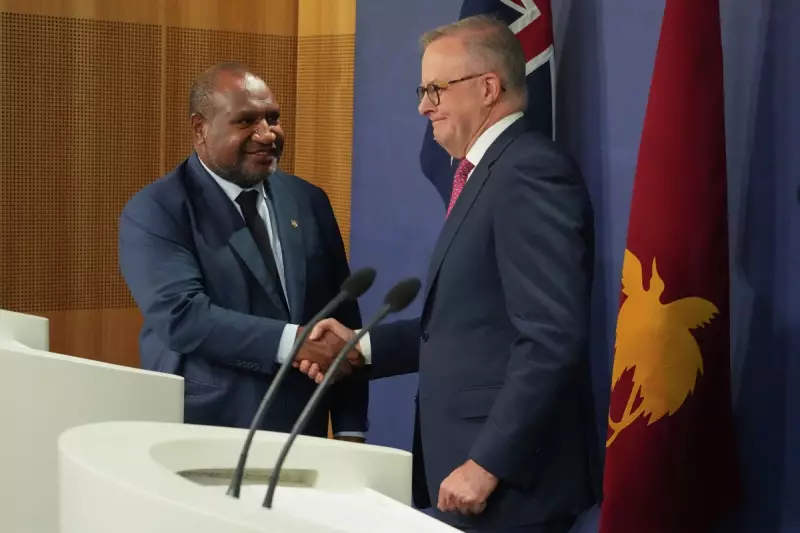
In a significant move to bolster regional security, Australia and Papua New Guinea have officially signed a comprehensive new defence agreement. The pact, finalised on Thursday, marks a pivotal moment for both nations as they seek to counter growing Chinese influence in the strategically vital Pacific region.
The agreement was formally inked by Australian Prime Minister Anthony Albanese and his PNG counterpart, James Marape, during a ceremony in Canberra. This new security framework is designed to deepen military cooperation, facilitate joint training exercises, and enhance the capability of Papua New Guinea's defence forces.
A Strategic Response to Regional Shifts
The pact arrives at a crucial time, following the Solomon Islands' controversial security deal with China in 2022, which sent shockwaves through Western capitals. This move by a key Pacific nation highlighted Beijing's expanding ambitions and prompted Australia to reassess and reinforce its own diplomatic and military relationships in its immediate neighbourhood.
"This is a natural progression," stated Anthony Albanese, emphasising the deep historical ties between the two Commonwealth nations. "We have a security relationship that is important, but this makes it more comprehensive."
What the Landmark Pact Entails
The agreement is broad in scope, covering several key areas of cooperation:
- Enhanced military training and joint exercises: Australian forces will have a more consistent presence for training and drills.
- Infrastructure development: Australia will support the upgrade and development of PNG's ports, airports, and other key defence infrastructure.
- Strengthened security capabilities: A focus on improving the capacity of Papua New Guinea's Defence Force to maintain internal security and contribute to regional stability.
- Closer policing and judiciary cooperation: The deal also extends beyond pure military matters to include collaboration on law enforcement and legal frameworks.
For Papua New Guinea, the agreement represents a major economic and strategic commitment from its largest aid donor and closest strategic partner. Prime Minister James Marape hailed the deal as beneficial for his nation's development and security.
Navigating a Complex Geopolitical Landscape
Analysts view this agreement as Australia's most decisive response yet to China's creeping influence in the Pacific. By solidifying its relationship with PNG—a nation with a population of over 10 million and significant strategic importance—Australia aims to anchor regional security on its own terms.
The deal is expected to be closely watched in Beijing and Washington, as it underscores the intensifying competition for influence in the Pacific islands. This agreement not only strengthens Australia's defence posture but also signals a renewed and active commitment to its traditional sphere of influence, ensuring that the regional order remains stable and favourable to Western-aligned democracies.





